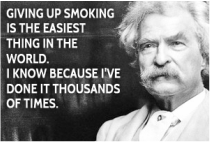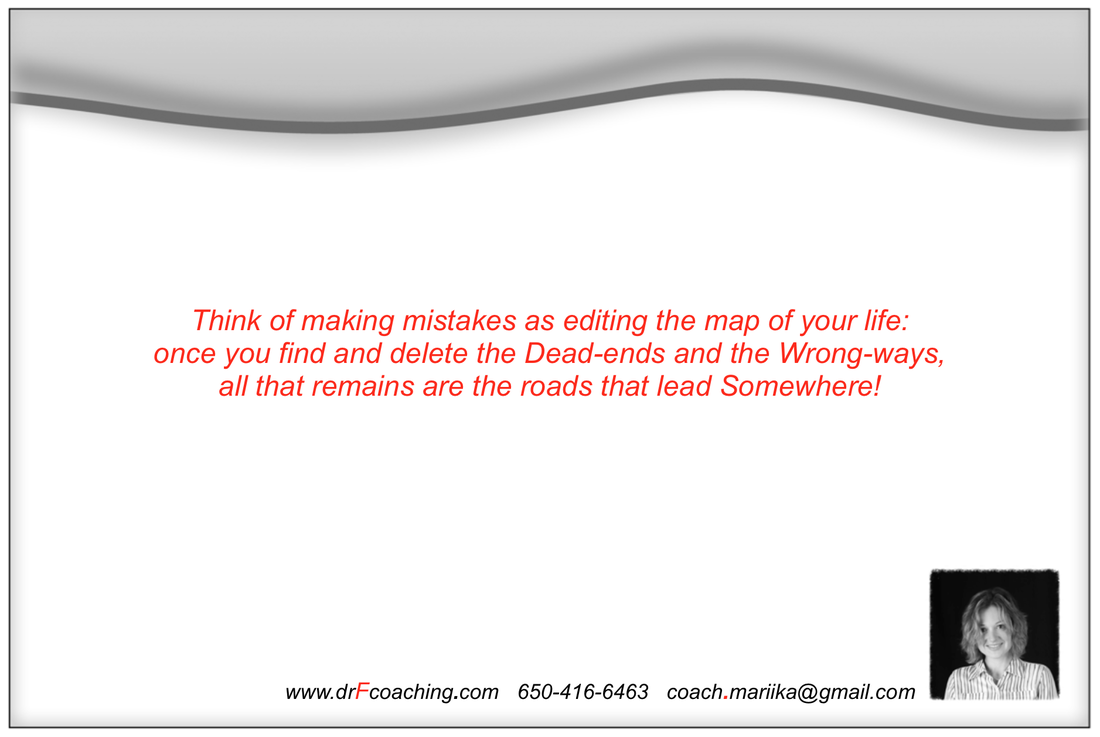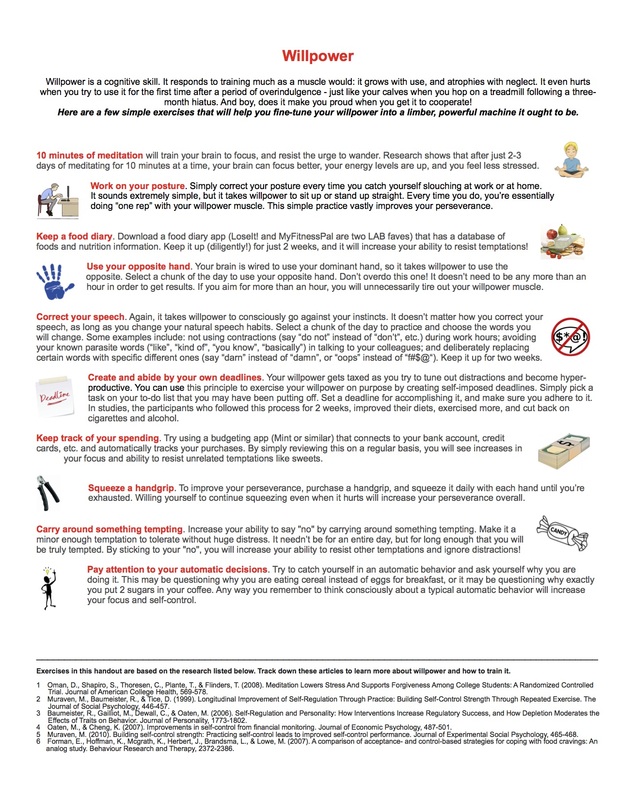 You have lost weight. Again. The bathroom scale is your friend. Again. It’s a nice place to be in life, isn't it? You should know, you have been here before. To paraphrase the immortal Mr. Clemens, losing weight is the easiest thing in the world... Few of my incoming LAB patients need to be schooled on this simple truth. They know. You follow any of the gazillion diets [that all boil down to eating fewer calories than you normally would], and the weight comes off! It’s almost magical: the stomach (the organ, not the tummy) shrinks to a normal size during the first week or two, appetite suppression and its accompanying euphoria make diligence easy, the compliments are rolling in, further boosting your resolve… good times. The trouble starts later. During the weight loss phase, which always involves caloric restriction, and sometimes (alas! not often) increased exercise, we adjust to a much more structured life than is our norm. It is a temporary change - just to lose the weight. That makes it ok: we’ll suffer temporary deprivation now for a payoff later. The key words being “suffer” and “temporary”. Do you see how this sets up getting in shape as a punishment, tolerated because it is only “for awhile”? And the reward is to return (I should say: plummet) to the lifestyle that caused obesity in the first place. Structure is a double-edged sword: On one hand, following specific instructions is a lot simpler than paying attention and making decisions. On the other hand, most red-blooded, freedom-loving American psyches will eventually balk at being constantly told what to do. And let us not forget that, in body and in mind, we lose what we don’t use. When we follow instructions, we learn to follow instructions, not to problem-solve: for that, you have to practice solving problems! [I will now indulge in a brief rant. Please, skip to next paragraph if you do not like rants] Why is it always The Weight?! It strikes me as coy, as well as short-sighted and, ultimately, self-sabotaging in the extreme. The fastest way to drop pounds (if that really is what you want) is to atrophy your muscles and give yourself osteoporosis. Starve yourself, stay as immobile as possible - the pounds will melt right off! Sound good? Thought not. What most obese people really want is to become slimmer, firmer, more agile, and younger-looking. In all my years of practice, I have had one patient who literally wanted to lose weight: his joints were arthritic, and he wanted to decrease the strain on them from carrying the extra poundage. That’s it. One person. [End rant] When someone is described as “high maintenance”, it is seldom intended as a compliment. Typically, such a person is seen as self-absorbed and demanding. I submit to you that what makes high maintenance individuals insufferable is that latter piece. A high maintenance person who assumes full responsibility for their maintenance, and does not expect others to make any sacrifices to their cause (this includes being forced to listen to endless recitation of one's gym exploits, by the way!), imposes on no one. On the other hand, by consciously assuming responsibility for maintaining your improved physique, you are making a statement. You are defining your body as an asset, an investment, a nest egg that needs your ongoing attention and care, so that you may rely on it now and later. Think of your beautiful, newly-slim body as a paid-off condo: there may not be mortgage payments anymore, but you still have your property taxes and monthly maintenance fees, and if you wish to keep living there you must pay them. It sucks. But it’s not as bad as paying all that AND the mortgage, right? Note that the actual process of writing checks at regular intervals is the same after paying off the condo as before. The only change is you write one less check. It’s the same with staying fit. You continue to monitor your energy formula Calories In [food] - Calories Out [movement + BMR] = Caloric Balance. The only change is that your caloric balance now only needs to come to zero - a much easier feat than the negative number you had to hit everyday while you were losing! I hope I have persuaded you to re-examine your beliefs about earning and keeping that sexy bod. TGIF, and Happy Thanksgiving, my high-maintenance (and worth it!) friends :-) If you wish to enroll as my patient (CA residents only), or hire me as your life coach (worldwide),
use my Contact Form to request your free phone consultation
1 Comment
The skit may be humorous, but it points to a real phenomenon: first impressions are quick, powerful, and hard to live down. That first glance at a new person often tells us whether we wish to approach for a better look. As a communal species, we have evolved to extract meaning from each other’s non-verbal cues, such as facial expressions, long before we learned to convey verbal ones on purpose by developing speech. The upside, of course, is being able to transmit important information under the circumstances when talking is not an option. We have all shared moments across a crowded room - that’s your non-verbal cues at work! With downsides, it gets interesting. The most obvious one is lampooned in the skit: it is difficult to reliably separate genuinely awful people from the ones who “just look like that”. Meaning that every once in awhile, a perfectly lovely human being receives the treatment rightly due to an a-hole. If you are such a person, it is only a matter of time before the unpleasant incidents gradually damage your faith in humanity and personal optimism. Now, for the less well known second downside. We know from neurological research that facial muscles communicate with emotional centers of the brain. It makes sense, right? Your face needs access to your feelings in order to correctly express them. But did you know that this connection runs both ways? I kid you not! All those “Act As If” and “Fake It ’Til You Make It” motivational posters were right after all! Feedback from the facial muscles involved in emotional expression can, nay - will! alter your mood overtime. If you look like a grump - you will eventually feel like a grump. Fortunately, the brain’s susceptibility to feedback from the body can be turned to good use. My patients who came to learn how to manage their mood disorders, overwhelmingly concur: - signing up for a funny videos mailing list; - running your kids’ cute baby pics for your screen-saver; - trading dirty jokes with your mate by text message on your lunch break It really does not matter. Anything you can do to cause your face to stretch into a grin, even if you have to do it by sheer muscular effort in front of the mirror at first, will raise your spirits. Yes, it will. Yes, it will! You just have to do it long enough. Got it? Good! Now, let us bring it all back to the impression thing. Once you are genuinely feeling better, your face will look less forbidding than it did before. The change in how people approach you as a result of this improvement will serve as a reinforcer to encourage you to keep on smiling. If you are one of the unfortunates portrayed in the skit, however, you still have work to do. I will use a snippet of dialog with a former patient to illustrate: Dr.F: So, what is better this week? Patient: I had no scrapes with the foreman this week! Dr.F: Wow, how do you figure you made that happen? Patient: Aw, you know: spent 20 minutes grinning into a mirror like an idiot every d@%n morning! Dr.F: Still feel like an idiot, huh? Patient: Well, at least I don’t feel like a surly idiot anymore :-) I hope I sold you on the idea of taking an active role in your mood regulation. Happy Monday, my positive friends! If you wish to enroll as my patient (CA residents only), or hire me as your life coach (worldwide), use my Contact Form to request your free phone consultation  Every once in awhile, I find myself performing an internal face-palm of sorts. I am sure you can relate. In the space of about three minutes, someone won’t zipper-merge onto the freeway; someone else cuts you off; then yet another bright bulb holds up three lanes of traffic as he tries to exit to the right from the left-most lane, with the left blinker on the entire time. It's one thing after another, the whole world has gone mad! Mad! What is wrong with everybody?! It seems that all the idiots in the five-mile radius have conspired to converge on this spot for the sole purpose of making your life more irritating. Did I lose you? That would be nice, but unlikely. Most people can’t resist the temptation to attribute malicious intent to strangers who likely don’t even know we exist. We neatly edit out evidence that will not fit, clump together a bunch of unconnected instances of bumping up against people – and voila! Everyone is out to get you. On purpose. Because nobody has anything better to do than to design and implement nefarious plans to mess with your day. Right? Let's go back and revisit that frustrating commute example. Since you did make it to work after all, would it be fair to assume that after that one driver didn’t let you merge – the next one did? What is up with that one? How about the one who silently (!) slowed down behind you when you had to slam on the breaks to avoid ramming the idiot that cut you off? What’s with her? Over the years, I have developed a sequence that costs me very little, takes just a few seconds, and has the power to shrink the mountain of day-destroying perceived negativity back to the mole-hill it really is. 1. Acknowledge that you are having a “What is wrong with everybody?!” moment. 2. Recall that since very few things in life are absolute, “everybody” is likely an exaggeration. 3. Recall that “everybody” can’t possibly be out to get you. Because most of them don’t know you. 5. Say: “This was a freak event, unrelated to me. It’s over. Nothing to learn here. Moving on.” 6. Experience a moment of gratitude for relative infrequency of such glitches. 7. Move on with your life. Happy Tuesday, my self-aware friends!  Legendary couturier Coco Chanel is reputed to have offered this advice to her chic clients: Right before you walk out the front door, take a twirl, look at yourself in the mirror, and remove one accessory – you likely do not need it. In my work with patients and clients alike, I often witness people paying disproportionately high penalties for speaking carelessly on-line. When we speak in person, the only trace our words leave behind is in the memories of those present. Complete with context. On-line, nothing spoken seems to vanish, or to survive in its original form. At the worst possible moment, a devil’s advocate rant from four years ago shows up in a search performed by a hiring manager at your dream job – ripped out of context, looking to a fresh eye like a horrible personal worldview. Bye-bye, dream job! Safeguarding yourself against damaging on-line misrepresentations is very easy. Just follow this simple sequence. 1. Type in your comment or statement. DO NOT hit send yet! 2. Go do something for a minute. Get a glass of water; do a stretching exercise; visit the restroom. This is a cognitive equivalent of Mlle. Chanel’s twirl. 3. Re-read what you wrote. 4. Delete the most unpleasant, inaccurate, or unhelpful thing you said. 4a. Repeat 4 until the text reflects both your true opinion and your preferred on-line persona 4b. If you are down to one thing, and it’s unpleasant, untrue, or unhelpful, ask: “Must I really say this?” 5. Go ahead and publish the statement that represents your true, thoughtful view! Happy Monday, my image-conscious friends! Let me paint you a scene. You are at your desk, trying to get some work done. You have finally collected your thoughts, and now comes the good stuff: the longed-for feeling of flow. Your mind is engaged. You poise your fingers over the keyboard, ready to commit a string of genius code to the… Naturally, this is the moment your teammate chooses to stick her head in the office door to inquire about something she won’t even be needing until a week from Monday. Your flow? Gone!
Now comes a decision moment: Do you come unglued, blame your colleague for the afternoon wasted, and spend the rest of the day seething? Do you try to recapture inspiration by sheer force of will? Don’t know about you, but I have never had much luck trying to get re-inspired on command. This quick fix works very well (field-tested!) for neutralizing the most common type of workplace flow-buster: the non-malicious, thoughtless kind. 1. Grab a sticky note and a fat black marker. 2. Write the following: “I will be available for consultation starting [insert exact time!] today”. 3. Stick the note on your door, cubicle wall, back of your chair, between your shoulder blades - wherever it will be seen before your visitor starts speaking. 4. Politely explain to each likely offender, one-on-one, that you are unavailable for consultation when the note is displayed, but you promise to be available after the time indicated. 5. Make sure you do make yourself available when you promised you would - this is very important! After a few early gaffs, your distractors will develop a habit of checking for the sticky note before entering your workspace. Think of the sticky note as a tiny neon-yellow road sign warning the well-meaning motorists to go around the construction zone. Most people are perfectly content to heed the warning, right? Happy HumpDay, my hardworking friends! If you are reading this, you may or may not be shy all the time, but you can likely relate to an old social dilemma: where does confidence leave off, and arrogance begin? Or, in more practical terms, how do you accept a compliment without inadvertently implying that it is nothing more than your due? Because, you know, it would be wrong to be publicly exposed as thinking highly of yourself. For some reason.
Deeper self-concept issues notwithstanding, there really is an easy way to take a compliment. Simply follow these steps, and brace yourself for the barrage of praise from your loved ones, once the word gets out that they can now safely tell you how they feel! Who knows? You might even start to believe them after awhile. 1. Say “Aww, thank you!” Be sure to smile - this all feels good, remember? 2. Compliment the complimenter on this compliment that made you feel good. Be specific. If you make ‘em feel good right back, you balance the scales. Enjoy your boost - it’s paid for! 3. Fooled you! There is no 3. Let us try some examples. “You look amazing, have you been working out?” “Aww, thank you! I started about a month ago. It feels so good that you can tell already” “Your baby is so happy, you must be a wonderful mom!” “Aww, thank you so much! I needed to hear that today” “I don’t know how you do it - you are never late for anything!” “Aww, thanks! I’ve been working on that, you are so kind to notice” This handout I created for my patients and clients is based on the work of many research teams. Go to footnotes for the sources of these easy-to-do, highly effective willpower training exercises.
Quick warning to the overachievers out there (you know who you are!): DO NOT do them all at once! Choose one, do it until you nail it - then move on to the next. Have fun! |





